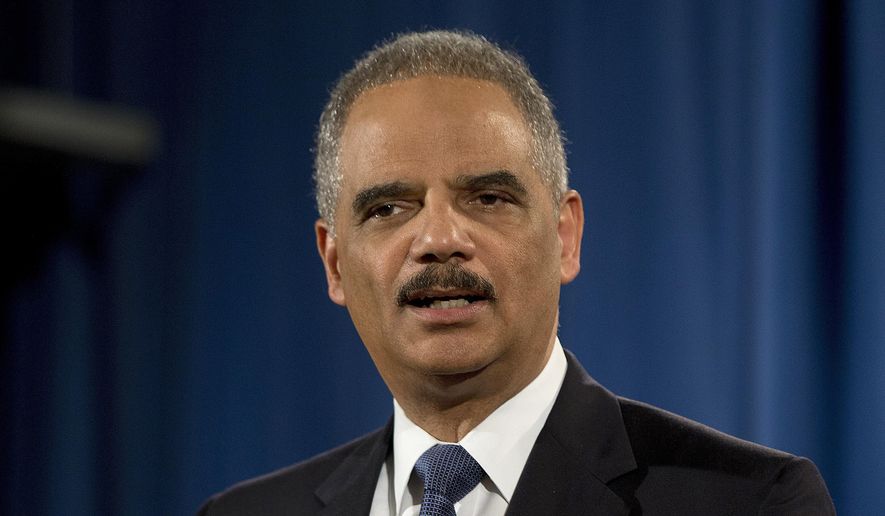Eric Holder drew a line between WikiLeaks and traditional journalism organizations in an interview Monday, nearly nine years since the Justice Department began investigating the anti-secrecy group under his watch.
Mr. Holder, who served as attorney general from 2009 through 2015, revisited the federal government’s ongoing WikiLeaks probe in light of prosecutors’ continuing efforts targeting Julian Assange, the website’s Australian-born publisher, in spite of concerns raised about their potential First Amendment ramifications.
“Should a publisher like that be open to charges by the U.S. government?” MSNBC host Ari Melber asked Mr. Holder.
“If you are acting in a pure journalistic sense, no,” Mr. Holder responded. “You look at the leaker you don’t look at the journalists. If on the other hand, you’re acting at the behest of a foreign power, you are in a fundamentally different position … and should be treated differently, I think, than members of the press.”
Mr. Assange launched WikiLeaks in 2006, and in early 2010 the group’s website began releasing a trove of sensitive U.S. military and diplomatic documents, including classified State Department cables and detailed accounting of the wars in Afghanistan and Iraq, leaked by former Army analyst Chelsea Manning.
Military prosecutors charged Manning in June 2010, and Mr. Holder confirmed within months that WikiLeaks was the subject of a separate probe being pursued by the Justice Department.
Prosecutors have not announced any criminal counts against Mr. Assange, 47, but outlets including The Associated Press and The Washington Post reported late last year that he has been secretly charged under seal. The specific nature of those charges is not clear, and the Justice Department has repeatedly refused to publicly confirm or deny the existence of any case against Mr. Assange, who was granted asylum by Ecuador in 2012 and has lived for years inside the country’s London embassy.
Appearing on “The Beat with Ari Melber,” Mr. Holder indicated that Mr. Assange may face the greatest risk of prosecution as a result of disclosures published years after Manning’s. He referenced the hacked Democratic Party emails released by WikiLeaks during the 2016 U.S. presidential election, for which federal intelligence and law enforcement agencies have attributed Russian state-sponsored hackers as the source.
“I would be concerned if I had proof that WikiLeaks was working in conjunction with components of the of the Russian government,” Mr. Holder said.
Federal prosecutors have charged several Russian military officers with obtaining the Democratic material released during the 2016 race by WikiLeaks. Moscow has denied responsibility, and Mr. Assange has claimed that his source was not a state actor.
Manning, 31, was ultimately court-martialed and convicted in 2013 of crimes including theft and espionage, and she served seven years in military prison before the bulk of her sentence was commuted during the final days of former President Barack Obama’s administration.
She was reincarcerated last month after being found in contempt for refusing to answer questions posed by federal prosecutors investigating WikiLeaks.
• Andrew Blake can be reached at ablake@washingtontimes.com.




Please read our comment policy before commenting.